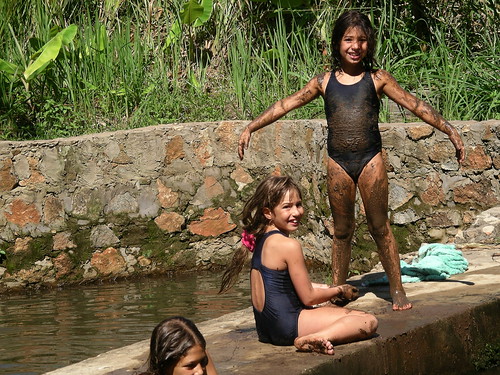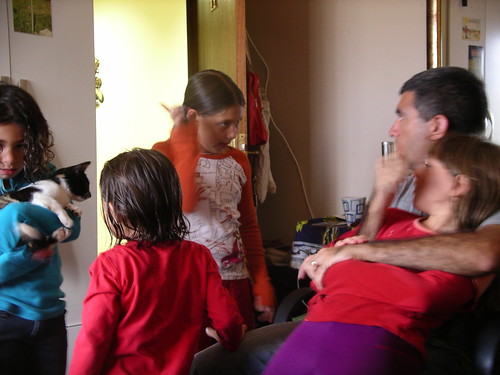First for UNICEF, then for Aldeia Nova, Eran has been in and out of Angola since 2001. I joined him in 2004 and lived and worked with him there for 2 1/2 years. If we had any agenda at all in the writing of this book, it was to avoid a dry re-telling of Angola's troubled history, or to over-indulge in a depiction of our own experiences there, or to dwell on the poverty and calamities that excite CNN and Western news sources. What we hoped to do instead was convey something of the lives of Angolans and the life of Angola which, though shaped of course by its history and calamities, exist with a fullness, richness and vitality that neither of these things can ever fully describe or do justice to. 
"After the Portuguese’ departure, and even after all the years of civil war, an immovable legacy remained inside the buildings and within the architecture and the aesthetic shapes of towns, cities and villages.
For every living Portuguese body that fled before the civil war, and for every Angolan body that fled during it, there remains a stone-dry shell of a house, parched and indignant, with a longevity the flesh and breath that the colonizers could never compete with, even though, between them and the Angolans, it was they who designed and built them.
Defiant, the gravestones around the houses and churches marking the bodies that never made it out of the country, seem as if they are clinging to what they once had but have lost, settling for the little piece of almost-eternity they have managed to hold onto.
In the eerie quiet, in the rustle of draughts and shifting shadows of the empty or re-occupied shells of the houses, it is almost as if, through the memories - or spirits - contained within them, those buildings are speaking for themselves."

"A few years before the ubiquitous transition to digital photography took place, four baby girls were born, only weeks apart, in a place called Cela, a district which, although it has its own centre, incorporates Wako-Kungo. The world these babies were born into would have been bullet-ridden and war-weary, with villages cut off and soldiers gradually returning to their homes from the bush. These four girls were born beneath a heavy sky. During the rainy season, the trees in the forests around their homes bowed and swayed beneath the weight of it.
All through the war’s finale storms raged: thunderous rain showers punished the earth, launching electric staffs into the ground and exploding the mud into dust, while the valleys around them defiantly blazed with gunfire.
But then summer broke through the rains and when the last drops settled in the crevices of large leaves and burst over the banks of rivers, flooding the land on both sides, and the lightening withdrew, and the heavy clouds parted letting thin, breathy, blue skies through, the war finally died. Somewhere overhead, through these deceptively serene skies, an aeroplane that was destined never to land wrote its goodbye message in its vapour trail, and when it crashed it took the war with it."

(Waterstones, Blackwell's, Amazon and Sylph Editions)













